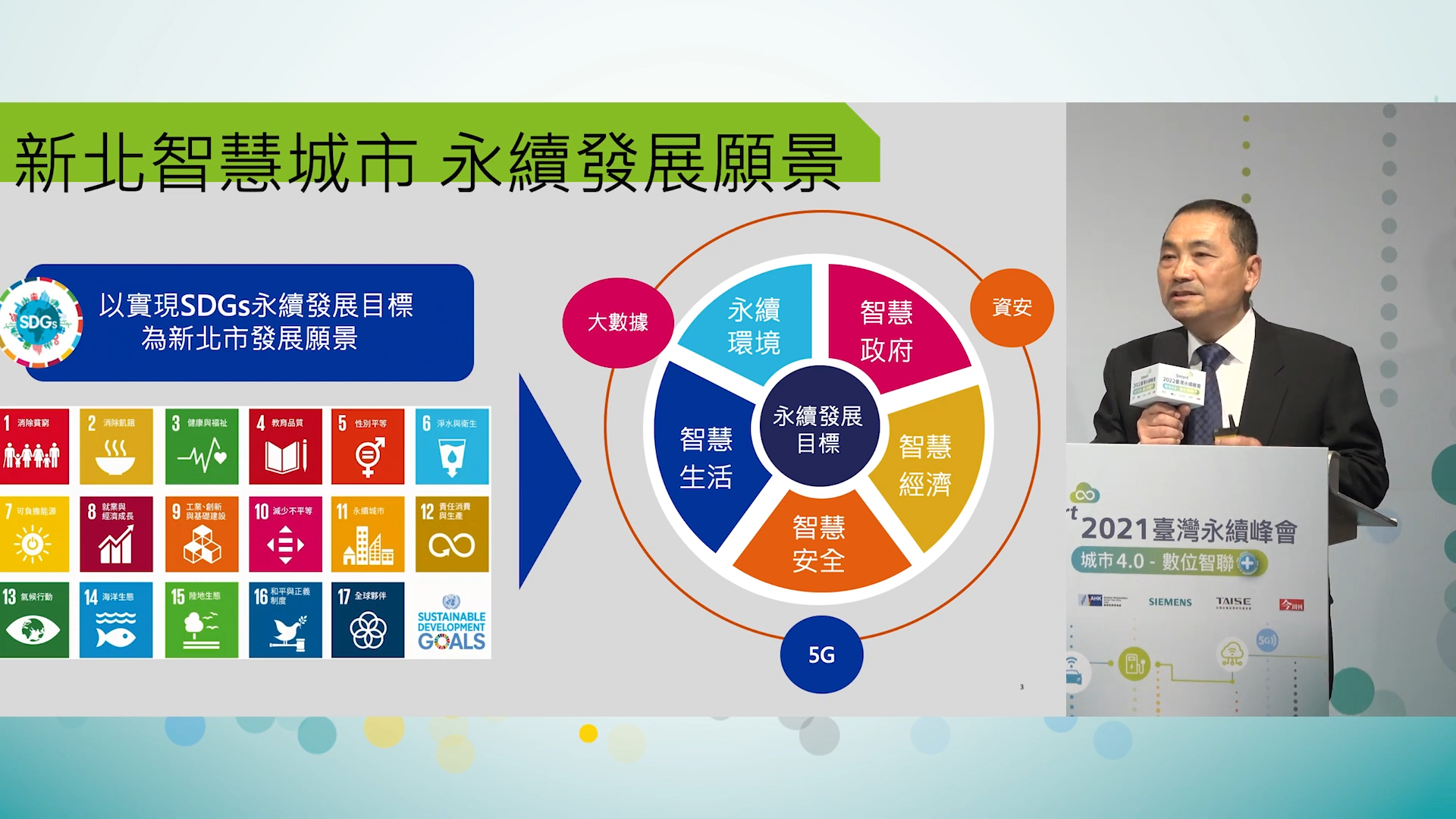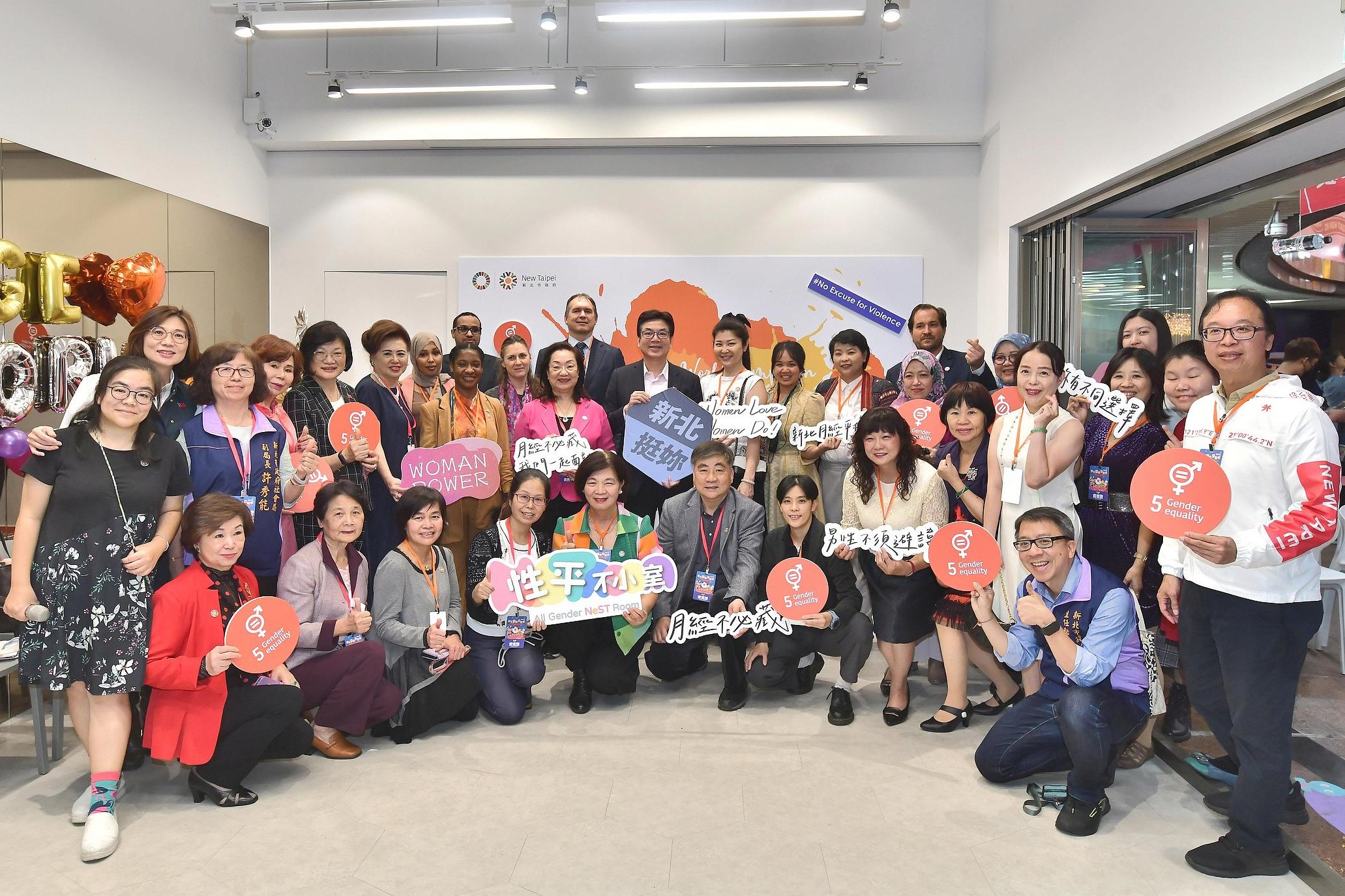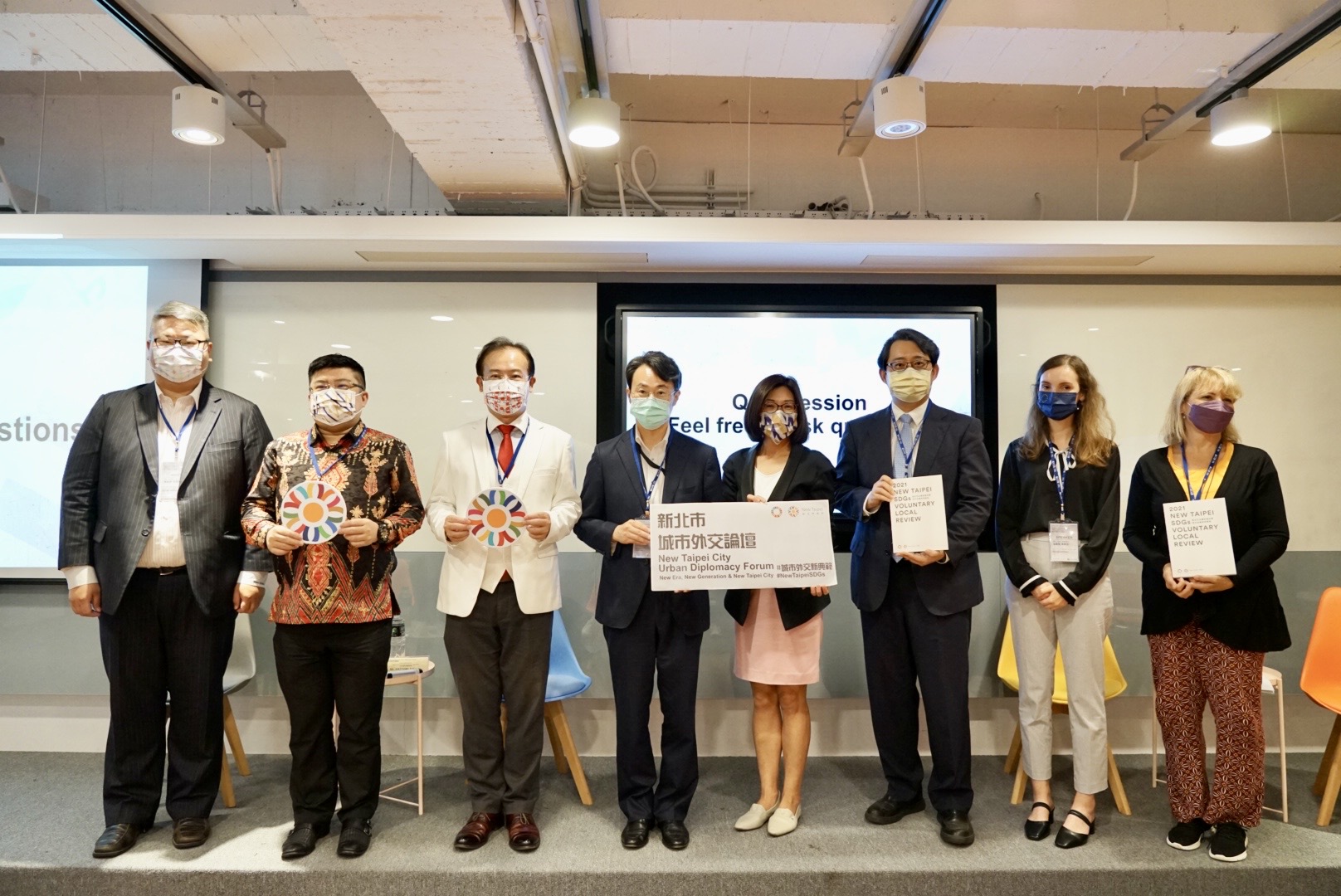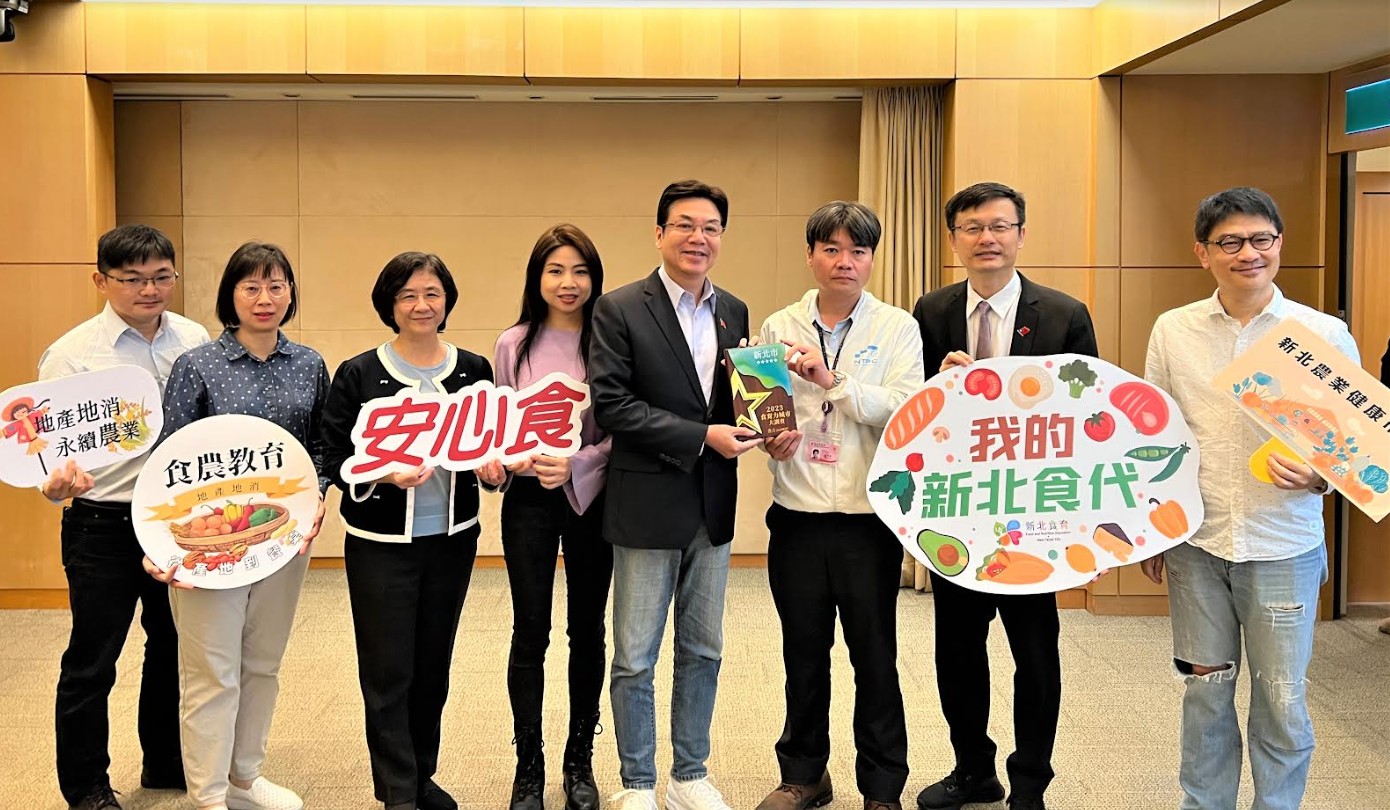
【SDG 17】New Taipei City Participated in "Smart∞2022 Taiwan Sustainability Summit – City 4.0: Connect and Digitalize" Hosted by Siemens AG
2022-03-04

On March 3, 2022, New Taipei City Mayor Hou Yu-Ih attended Smart∞2022 Taiwan Sustainability Summit – City 4.0: Connect and Digitalize, which was jointly hosted by Siemens AG, German Institute Taipei, German Trade Office Taipei, Taiwan Institute for Sustainable Energy, and Business Today. In addition to sharing New Taipei City's digital transformation experiences gained from the Smart Flood Prevention Platform, Baogao Science and Intellectual Park, and Public Security and Transport Visualization Analysis Decision Platform, Mayor Hou emphasized that New Taipei aims to integrate Sustainable Development Goals and develop a livable smart city with adequate power and water supplies.
Taiwan Sustainability Summit, which was first held in 2013, has become a significant event among the industries, governments, and academia of Taiwan and Germany. This year, the focus lies on application technologies associate with City 4.0. City 4.0 is a concept derived from Industry 4.0 and emphasizes low-carbon emission, green-energy, and smart city transformation, which it recognizes as strategies for future challenges, including climate changes. In the Summit, guest speakers Jochen Partsch, Mayor of Darmstadt, Germany, and Matthias Rebellius, a member of the Managing Board of Siemens AG and CEO Smart Infrastructure, shared how German cities engage in smart transformation with visionary policies. In addition to New Taipei City, local government officials from Taipei City, Kaohsiung City, Hsinchu City, and Taoyuan City also shared their experiences.
Siemens AG entered the Taiwanese market in 1955 and established a Taiwan branch in 1989. In 1994, Siemens AG and the Ministry of Economic Affairs entered into a strategic alliance. In 2022, Siemens AG released a series of action strategies and provided it to cities in Taiwan as a reference for transformation into City 4.0. The strategies include the following:
Taiwan Sustainability Summit, which was first held in 2013, has become a significant event among the industries, governments, and academia of Taiwan and Germany. This year, the focus lies on application technologies associate with City 4.0. City 4.0 is a concept derived from Industry 4.0 and emphasizes low-carbon emission, green-energy, and smart city transformation, which it recognizes as strategies for future challenges, including climate changes. In the Summit, guest speakers Jochen Partsch, Mayor of Darmstadt, Germany, and Matthias Rebellius, a member of the Managing Board of Siemens AG and CEO Smart Infrastructure, shared how German cities engage in smart transformation with visionary policies. In addition to New Taipei City, local government officials from Taipei City, Kaohsiung City, Hsinchu City, and Taoyuan City also shared their experiences.
Siemens AG entered the Taiwanese market in 1955 and established a Taiwan branch in 1989. In 1994, Siemens AG and the Ministry of Economic Affairs entered into a strategic alliance. In 2022, Siemens AG released a series of action strategies and provided it to cities in Taiwan as a reference for transformation into City 4.0. The strategies include the following:
(1) Promote digitalization and infrastructure transformation of the city, combined with integration of distributed and independent systems.
(2) Use digital technologies to convert buildings into high-performance assets.
(3) Accelerate development of power grids and realize energy independence.
(4) Expand deployment of smart power meters and data management systems to increase resource efficiency.
(5) Use digital solutions to enhance a city's ability in fighting water shortage.
(6) Use digital twin simulation to increase the management efficiency and safety of urban transportation systems.
(7) Use new technologies conforming to international standards to upgrade existing traffic control systems.
Competent Authority: Research, Development and Evaluation Commission × Secretariat
Related Solutions
 Visitor:238
Visitor:238

 Official website of the Smart∞2022 Taiwan Sustainability Summit(open new windows)
Official website of the Smart∞2022 Taiwan Sustainability Summit(open new windows)

